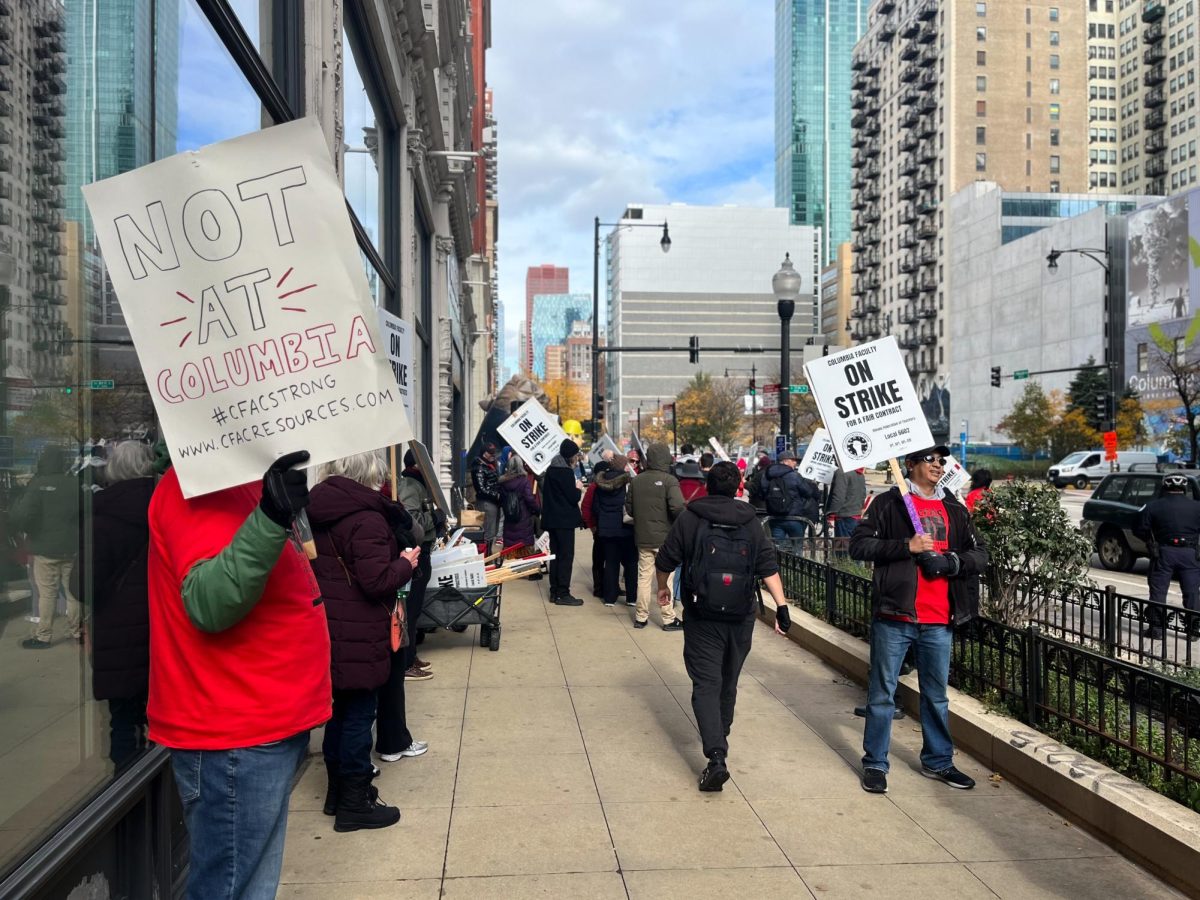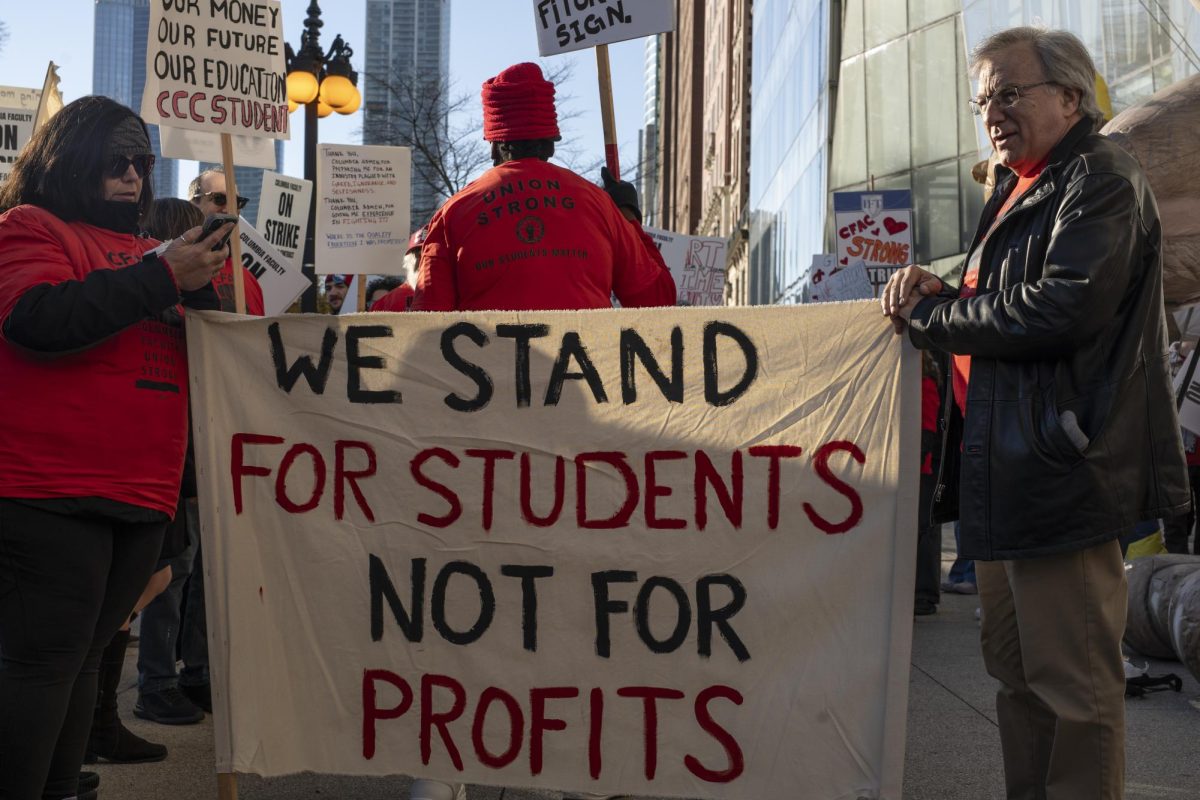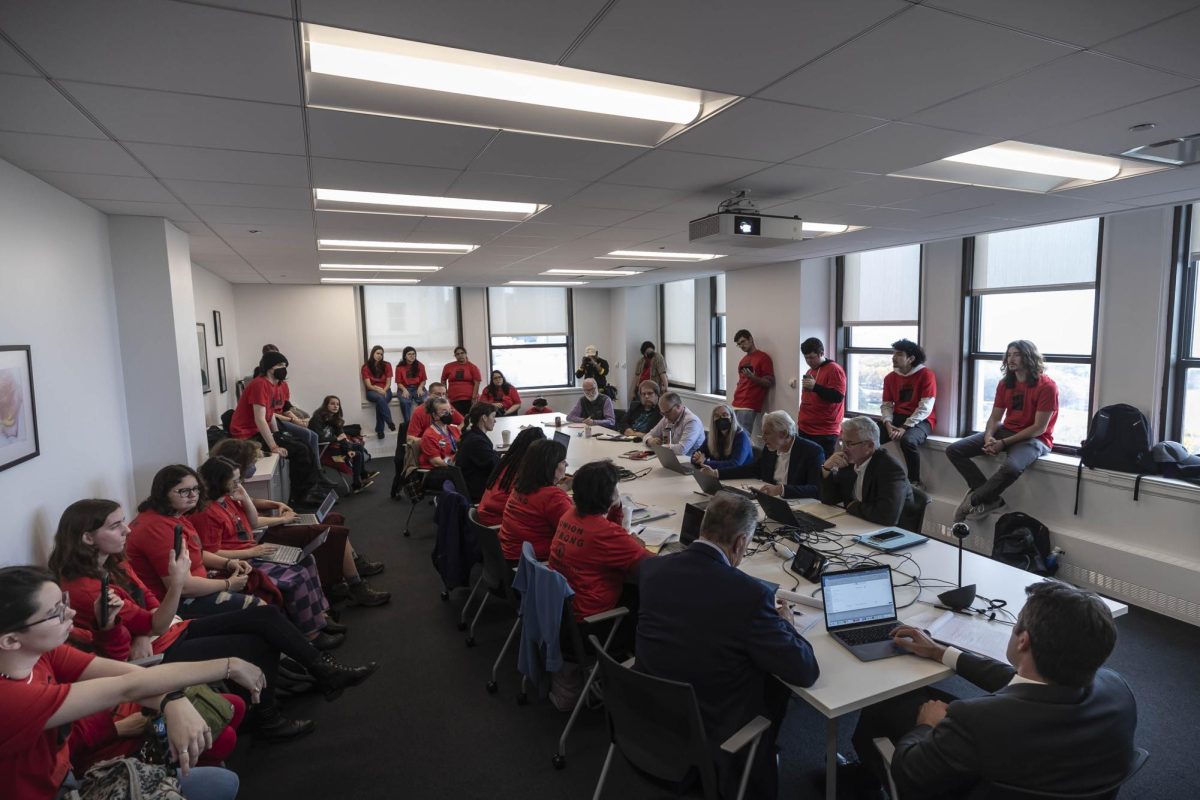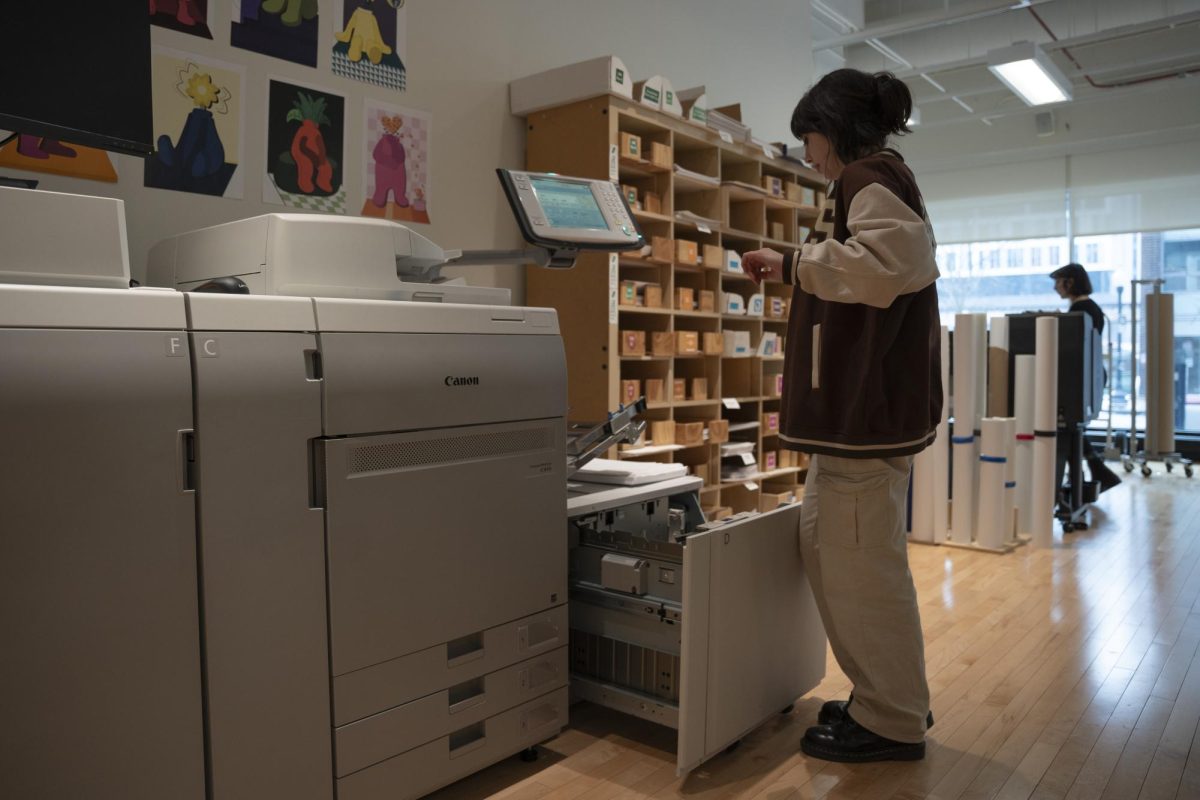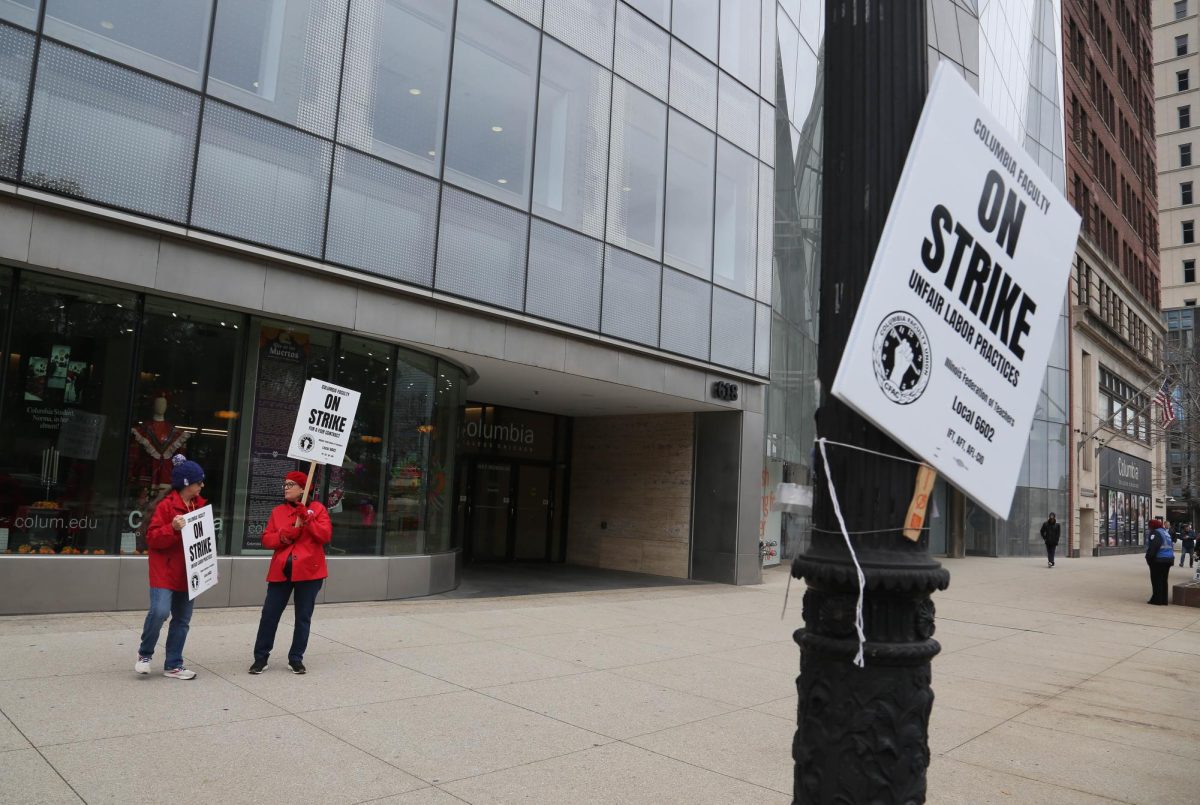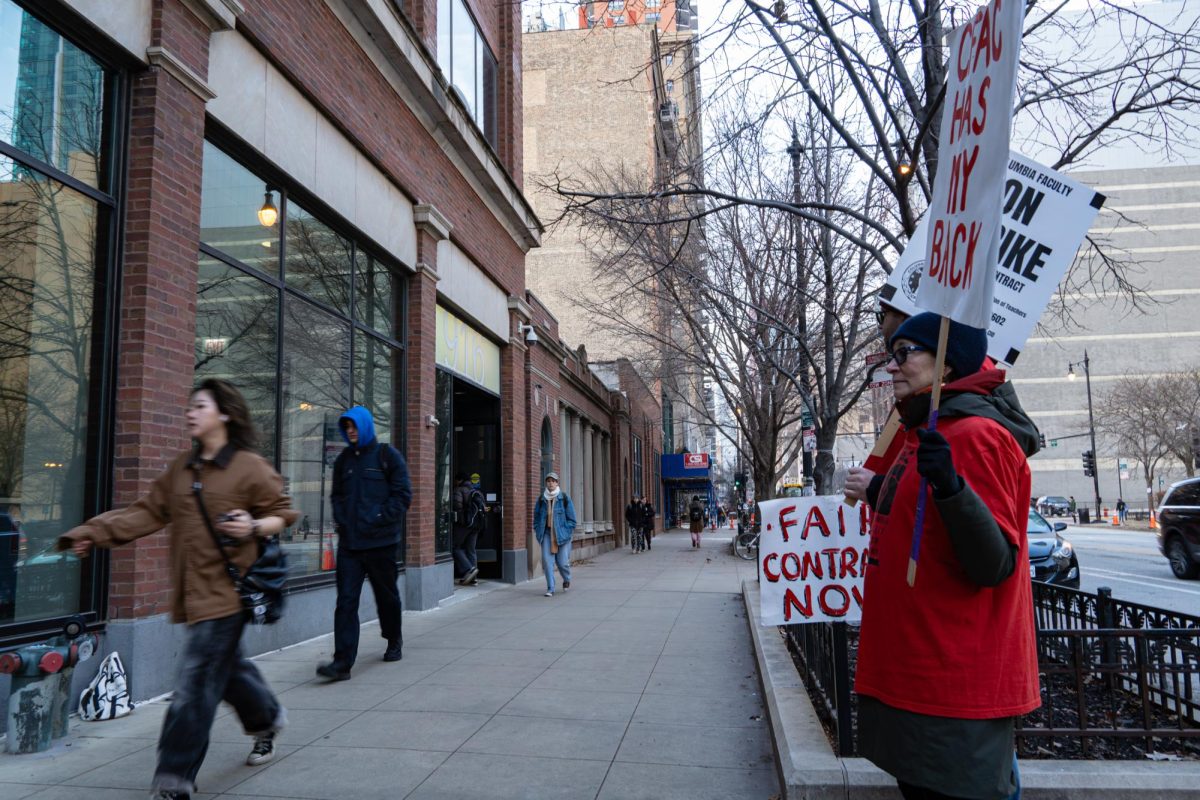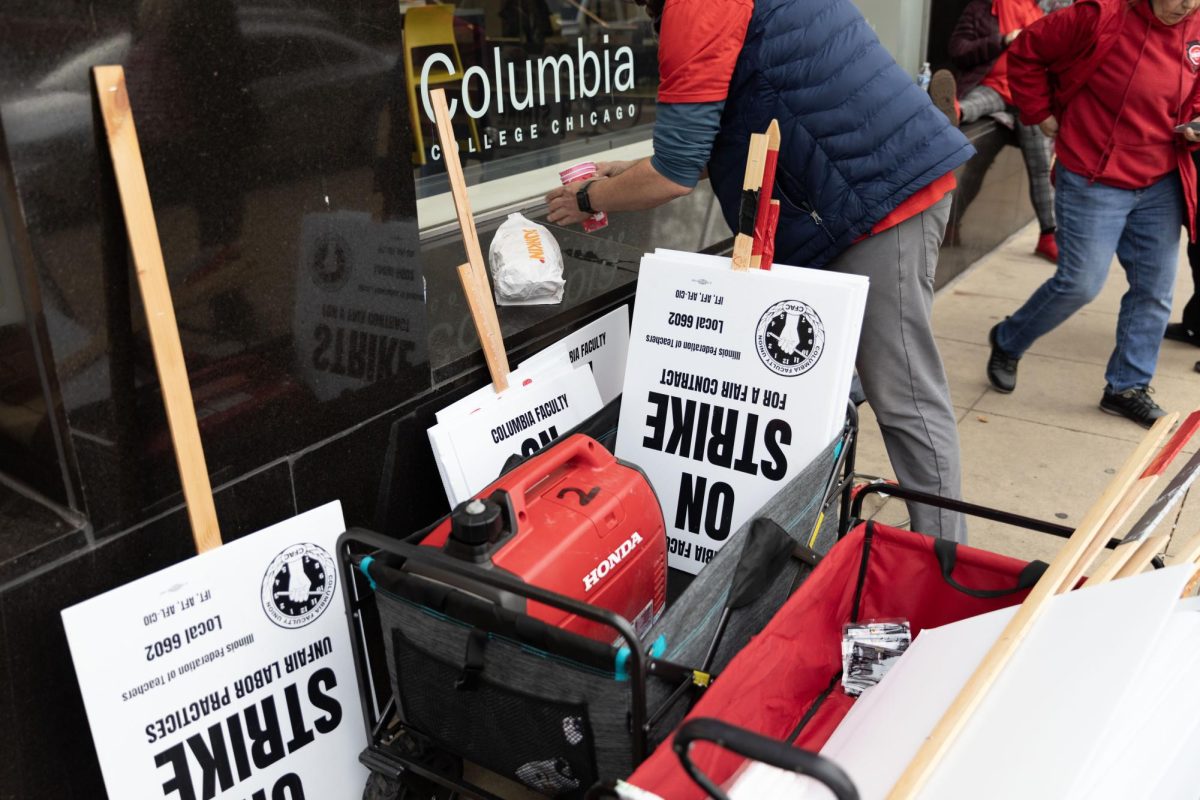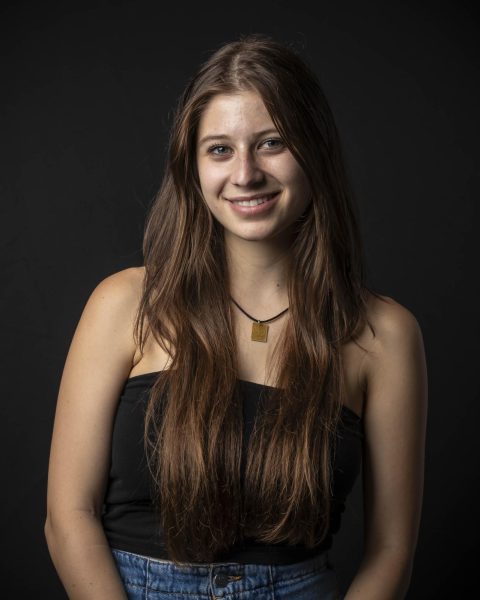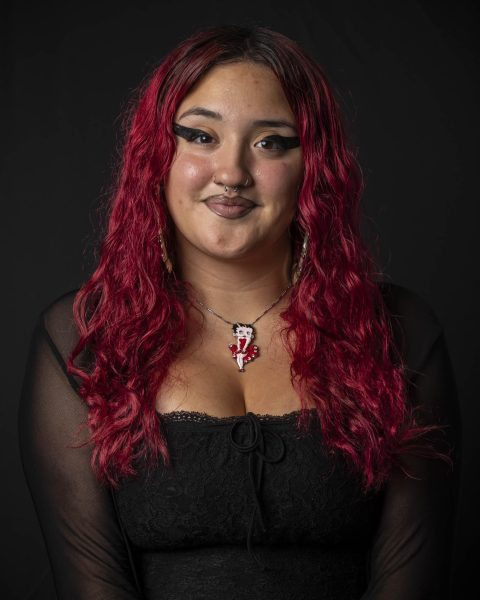The college has reached out to an assigned federal mediator after meeting with the part-time faculty union again over the weekend, a sign that the talks have not stalled completely.
Chief of Staff Laurent Pernot, who is a part of the college’s bargaining team, said the college agreed to the union’s revised proposal for compensating part-time faculty who lost sections for the Spring 2024 semester.
“We have made further progress toward the establishment of a new health care benefit, with the college working with a vendor to finalize some details for the union’s review,” Pernot told the Chronicle in an email on Tuesday, Nov. 21.
The part-time faculty union – known as CFAC – is now in the fourth week of its strike, making it one of the longest adjunct teacher strikes in U.S. history.
Pernot said the college does not know the status of communication between the union and the mediator.
Columbia Faculty Union President Diana Vallera, who has been hosting regular Zoom meetings, did not respond immediately to a text seeking comment.
Fall break is due to start Wednesday, Nov. 22. Classes resume next week, many with replacement teachers.
Senior Vice President and Provost Marcella David sent an email to students on the day before fall break, telling them they are expected to attend class and complete their coursework when they come back after Thanksgiving.
“Your grade for the course will be determined by the work done before and after the interruption caused by the strike,” she said in the email.
Students who choose not to return to class in solidarity with the union will not be accommodated, she said.The majority of Columbia’s course sections are taught by part-time instructors who have been out on strike since Oct. 30. Although not all part-time teachers honored the strike, most of them have.
They will be replaced by full-time faculty, other part-time instructors and new teachers, David said in the email.
She reiterated that all replacement teachers are “subject-matter experts” qualified to teach the courses they are taking over.
In an interview with the Chronicle, David said some departments are “100%, ready to go” with newly assigned instructors. Departments will continue to work throughout the Thanksgiving break to fill any “gaps, if there are any,” she said.
Some full-time professors are picking up five or more courses on top of their own teaching loads, which is typically three courses per semester for tenure track and tenured faculty and four classes per semester for teaching track.
David said replacement faculty – who are all volunteers – will be compensated, although some faculty have asked not to be paid or asked for the money to be donated back into one of Columbia’s student support programs.
“We had no time to wait for there to be a resolution,” David said. “We needed to have a plan for restarting…Otherwise, it would be very hard for us to finish this semester.”
David said in her email that new instructors may not complete the course they are taking over as originally planned but instead will be “providing learning opportunities that facilitate learning outcomes relevant to the course or program and allowing students to complete the semester and move forward.”
This also means that if the strike were to end before the Fall 2023 is over, striking part-time faculty likely would not go back to their original classes to minimize disruption for students, David said. But she added that if a part-time instructor wanted to return, it would be considered.
Daniel Flowers, a sophomore music major, said he is grateful that full-time faculty are stepping in to the classes that have been affected by the strike.
“Honestly, I sort of appreciate it only because I am taking a lot of credits, and I was worried that I might lose those,” Flowers said. “But I plan on going to class but I do still kind of feel bad for all the part-time teachers because I always do support it.”
Morgan Murphy, a sophomore interior architecture major, said she is worried about grading from replacement teachers.
“I’m just not really happy with the whole situation because I don’t like strikes or anything that has to do with it. It makes me worried and anxious,” Murphy said. “When it comes to the strike, I really don’t like talking about it.”
All students will be able to choose a pass/fail option for any course in the fall semester.
“Finishing the semester is really, really important,” David said. “I don’t want any student’s time in college to be extended. I don’t want any student to not graduate in a timely fashion. I don’t want any student to have to spend more money and more time and more opportunity costs, because they’ve lost months that they put into an education.”
David said if students don’t return to class, it could impact their financial aid.
“There’s all sorts of hidden costs that they might not even be aware of, I don’t know if they understand the financial aid implications that we really wanted to make sure that we were paying attention to,” David said.
She added that the college is resuming classes instead of canceling the semester and giving tuition refunds.
“I’m not going to pretend that the idea of giving tuition refunds for failed courses, where we have failed to deliver courses is a scenario which would do incredibly, incredibly, significant harm to the college,” David said.
In an email sent on Saturday, Nov. 18, Kim said the college was considering tuition credit “in some instances” in response to inquiries from students and parents.
Additional reporting by Jordan Dawson.


